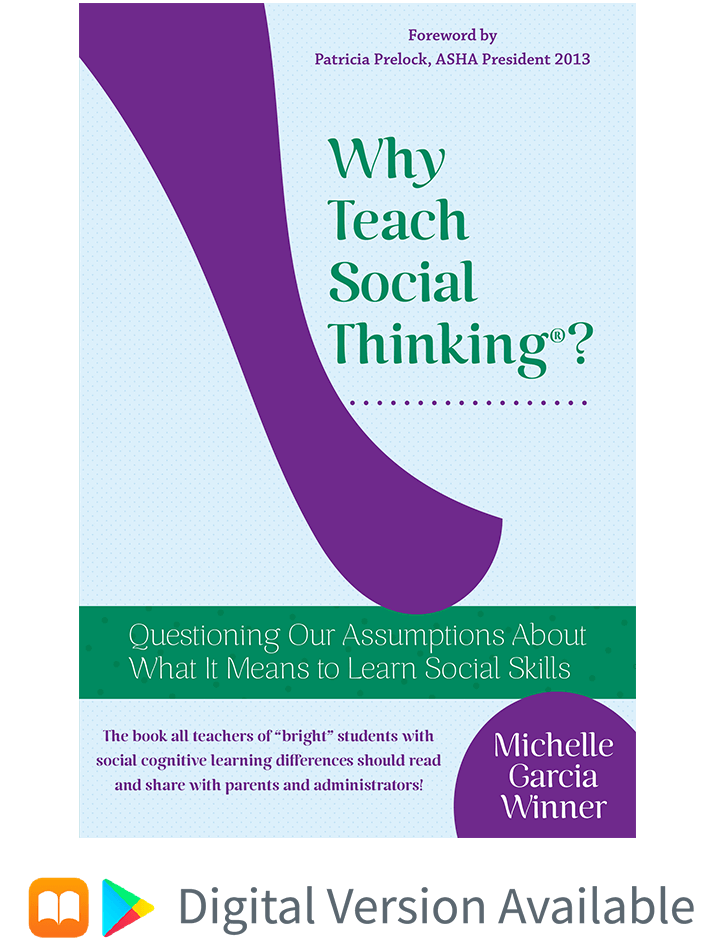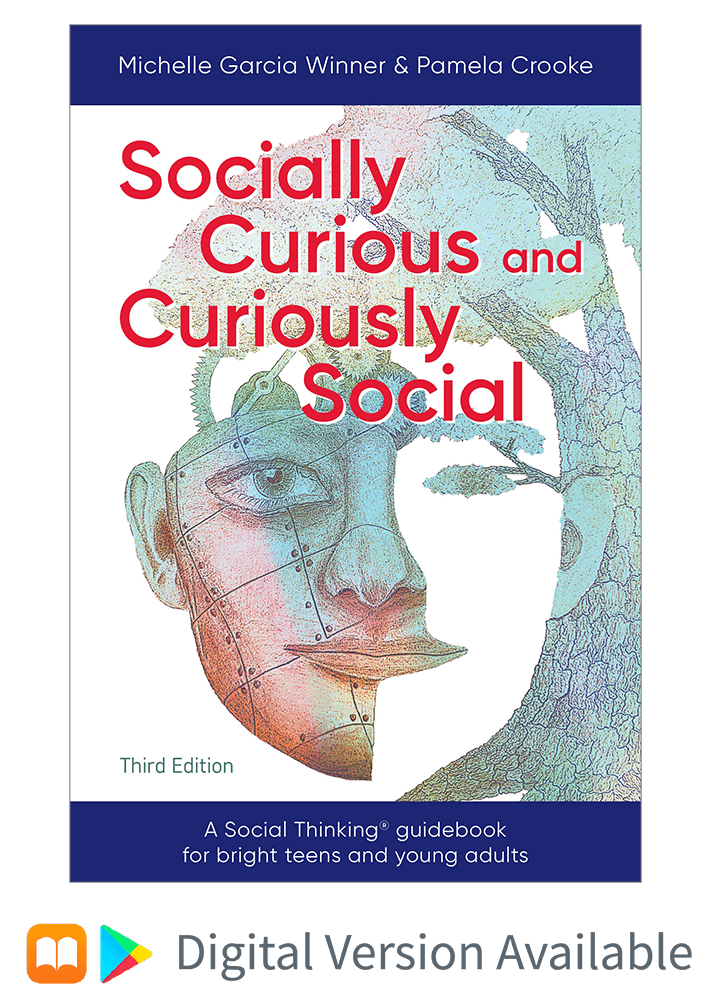Updated: March, 2022
© 2022 Think Social Publishing, Inc.
Many of our students/clients received some level of support through school based 504 plans, IEPs and/or from counselors, psychologists, and psychiatrists in their community as children and into their high school years.
Turning 18 years old in the United States results in a person being referred to as an “adult” or “young adult.” This means they are legally responsible for their actions and based on their parents’ decision, they are potentially responsible financially for all of their costs of living, education, etc. However, many parents continue to financially support their young adult/adult children while they pursue post-secondary education as well as assist with living costs if their “children” are unable support themselves. To parents this may feel like their adult-children continue to require extra educational, psychological, social skills and/or life-skills counseling to help them learn to live more independently as an adult. While parents may fund these extra educational/therapeutic adult services, parents are not typically permitted to have the same direct access to their adult-children’s service providers. Instead, it is expected adult-children can independently understand how to utilize the information they are gaining from these treatment services and then directly apply strategies learned as needed across their school, vocational, community, or home experiences.
From our experience, this is not the case. As our students transition from high school into and across their adult years, they struggle to direct the teachings and find meaning within the guidance offered by their treatment providers (tutors, counselors, social thinking therapists, etc.) When these adults were children, their parents were often very involved in guiding the treatment team and assisting with the development of the treatment plan and even goal writing. Now, as adult clients, they struggle to find a strong, meaningful voice in their treatment program, which results in weak follow through with applying what they are supposed to be learning outside of the actual treatment sessions, or even fully understanding why they are working on it inside the treatment session. Treatment services may have been established with client feedback working alongside well-meaning clinicians, but there can still exist a lack of clear ownership of treatment goals and related outcomes when our clients don’t realize they are solely responsible for the ultimate destination/outcome.
Federal law requires that students on IEPs in high school be guided through a legally mandated transition plan to start them thinking about life as an adult. A body of research also suggests that helping students develop “self-determination” leads to them making more direct decisions about their treatments, more actively participating in the development of the transition plan, and being a more active participant at their IEP meeting. Actively working with students during high school to be more direct leaders of their own treatment plans is highly recommended. However, while students are still in high school they can’t imagine how they will manage their treatment team in adulthood when the team doesn't actually know each other!
Many parents of my adult-clients continue to pay for their adult-child’s services. Because they no longer help navigate their adult-child’s actions/decision making they wonder if the treatment is effective. They tend to have no idea what their adult-child is working on in treatment or whether they are utilizing related strategies. Furthermore, other members of the adult-client’s treatment team may not know what other treatment professionals are asking of the client or whether their messages are consistent or conflicting. The bottom line is that most adults may see many treatment professionals but there is typically no “treatment team” in any team-based sense unless the adult-client is enrolled in a specific program that offers coordinated team-based services (e.g., a transition to college program).
Many of my 22 to 30-year-old clients have multiple treatment service providers, yet these clients have little accountability to each of their specialists. I have yet to work with a client who encourages different specialists to coordinate with each other on the client’s behalf. Seeing this happen again and again, I felt it was important for me to help my clients more actively learn that they are responsible for their own treatment team. This includes how to discuss the services being received, ask questions, seek clarification, share information among specialists, and advocate for what they need to learn. The result is the following long term teaching unit comprised of a scaffold of lessons. Social Thinking treatment, upon which these lessons are based, dovetails nicely with other lessons that may be generated from post-secondary oriented professionals such as special educators/tutors, counselors/psychologists and life-skills learning specialists.
Becoming the Director of Your Own Treatment Team
The following are some ideas we are exploring to help our students take on more responsibility for guiding their treatment professionals (even parents) and using what they are learning more effectively.
- A special note to/about parents: If parents are paying for the services and/or the client is still living with the parents, the client signs an agreement giving permission to the treatment professionals to talk to parents with or without the client being present. This allows parents to offer their perspective on how their child is coping and what the client needs to be working on. It also provides opportunity to find out if the adult-client is following through on using their strategies outside of the treatment room, as well as helping parents learn ways to encourage the growth of their adult-child. Actively engaging parents and their adult-children to continue to communicate about their work with specialists is a positive benefit for most of my families.
- The client completes the following Thinksheet:
I Am the Director of My Own Treatment Team
I am receiving some treatments related to social learning, social emotional functioning, and social engagement. I am working to better learn how to coordinate the services I received as my service providers don’t usually know each other and they are located at different offices spread out around my community.
The following points help me continue to develop self-awareness as to why I am working with a specialist to better develop my social thinking.
Rate the following skills on a scale of 1-10 (1= strongly disagree; 10=strongly agree):
|
|
|
|
|
|
|
|
|
|
|
|
|
|
|
|
|
|
|
|
In the next year I would like to help myself be able to accomplish the following:
1.
2.
Specialists (educational, counseling, psychiatrists, etc.) who work with me are all people I continue to welcome onto my treatment team. While they may or may not know each other, they are part of my team because they all work with me. To help me benefit from their different roles and advice, my job is to help coordinate how they assist me.
Below are listed the names of each specialist I work with and their specific role in helping me learn new information. (Include counselors/psychologists/therapists, tutors, job coaches, and other people you may work with at your university/junior college/transition program to coordinate your learning needs.)
|
Name of each specialist on my treatment team |
The specific role of the specialist in my life |
|
|
|
|
|
|
|
|
|
|
|
|
|
|
|
If my parents are still actively part of my life (I talk to them regularly, and/or I live with them, and/or they pay many of my bills) then they have a role on my treatment team as they continue to encourage my growth. I describe their role as:
As I make progress related to my treatment program, I recognize this impacts my parents (family) in the following manner:
I would like certain members of my treatment team to know what others are working on with me because the treatment ideas among this group overlap. Below I have described this information.
I can initiate this discussion with them by explaining I think it would be really helpful to my specialists and me if they knew what I was working on with other members of my team.
It may help me to plan which day and time I want to have this discussion, to help me follow through with getting it done. I can put a reminder in my planner. My inner coach can also remind me that going to these different appointments and sharing this information with my specialists gives me a forum for discussing conflicting information and helps my specialists know the many different things I am working on in any given week or month.
I will appoint one person of my treatment team to help me with this coordination (likely the person who is having me fill out this worksheet). I will let that person know how I am doing with communicating with my various specialists in a more direct manner.
Note from Michelle about the next section:
The following worksheet, Goals and Action Plans, was designed to help my clients work toward achieving their goals by learning to clearly define what they are (physically) planning to do. After completing this worksheet, they then actively define their action plans for the week and describe how they are going to take data on each. While the following information does not list the different data sheets we are developing, hopefully it helps you, the specialists, seek more clarity with your clients to help them understand their treatment program and their responsibility to it. Specialists are not responsible for changing their client’s behavior, perceptions, or ability to function. This responsibility lies squarely with the client.
Carrying a Toolbox: A Useful Analogy
When clients were children, their parents/teachers carried the toolbox, opened it, took out the best tool (strategy), and not only taught children how to use it but told them when to use it.
By adolescence, students are expected to carry their own toolboxes, but parents and teachers still remind them of their tools and continue to advise them on how to use them.
By adulthood, students/clients are now expected to carry the toolbox, open the toolbox, select a tool/strategy and use it without guidance from specialists or parents.
A final word on the toolbox: The goal of any specialist working with an adult student/client in a treatment program is for the student to take control of their toolbox. A specialist is a tool in that toolbox, one that the client needs to learn how to better utilize in combination with the myriad strategies the specialist teaches. For specialists to do their job well, they need to avoid doing the thinking and work for their clients. They do need to work with clients to figure out how their clients can take data to assess their use of the new skills/concepts being taught (e.g., data to see if they are using their toolbox effectively).
The information provided here is not all-inclusive but is intended to help students explore their own learning and escape routes and develop further insight into becoming more accountable to themselves!
Goals and Action Plans
Goals are things we THINK about to move our life in a different direction.
Action Plans are things we DO to help ourselves accomplish our goal.
For example, if I talk about wanting to “make friends” or “get good grades,” I have stated some goals. Stating these and then doing nothing measurable to work on them is called “talking the talk.” To be honest, there are times when we all “talk the talk,” – that means we talk about more than we actually will accomplish.
However, for the goals we truly want to accomplish we have to do something very visible that helps us meet the goals. We have to put a set of actions in motion, we call them “action plans,” that we can define and carry out to meet the stated goal. When the action plans are carried out, we call this “walking the walk.”
In treatment sessions we need to focus on both the thinking and the doing (setting clear goals and developing the related action plans to carry them out).
As you likely realize, some goals are harder to achieve than others. Given that humans, for the most part, don’t change their thinking and related behaviors easily, your job is to try and figure out goals and related action plans where you can learn to both “talk and walk” to help you move your life in the direction you desire.
Finally, think about the fact that some goals are larger than others. Large goals may be referred to as “long-term goals,” and the smaller goals we work on to meet the larger goal are called “short term goals.”
Changing our thinking and our actions (behaviors) means we have to begin by organizing how we are going to approach this. We are going to study how to help ourselves help ourselves! We’ll also learn the barriers or roadblocks our minds throw at us to interrupt this process!
Goals and Action Plans: Creating My Own Treatment Plan
Long-term goal:
3 or more short term goals that you have to accomplish to meet this long-term goal:
Pick one of these short term goals and develop a set of action plans to help you accomplish this short-term goal:
List action plans (which are typically sequenced) to help you move in the direction of accomplishing this goal. (See the diagram below, with three columns.)
- In the Action Plan column write down each of the sequenced behaviors you will do to help you accomplish the short-term goal.
- In the Supporting/Inner Coach column describe what you will say to yourself (your inner coach) to encourage you to accomplish this action plan even if it seems to be a pain at the time you need to get it done.
- In the 3rd column, Self-Defeating Comments, list the actual things you are likely to say to yourself to make you avoid doing this action plan. These comments often set you up for making excuses that sound quite realistic. This column is just as important as the other two, as it describes the ways you think that make you stop focusing on the action plan and related goal when you face a difficult moment. This becomes a roadblock or barrier to your own success.
- In the 4th column write down when and where you will carry out this action plan to work toward your goal.
|
Action Plan |
Supporting/Inner Coach Thoughts |
Self-Defeating Comments (excuses) |
Time and Place to Accomplish Your Plan |
|
|
|
|
|
|
|
|
|
|
|
|
|
|
|
The next time we meet we can discuss this chart and evaluate how well you were able to keep yourself aware of your action plans related to your short-term goal and discuss whether this system needs to be tweaked to help you continue toward your own success.














